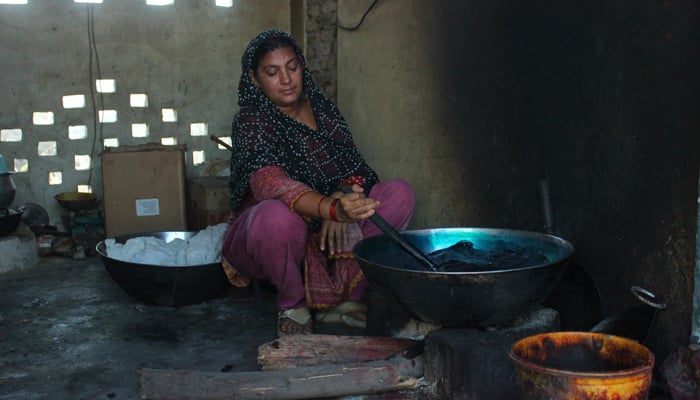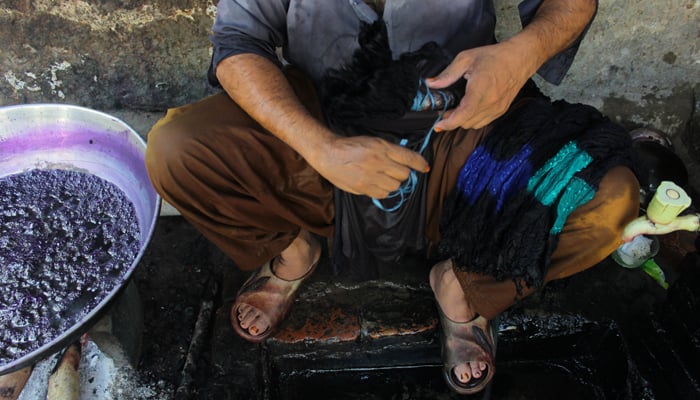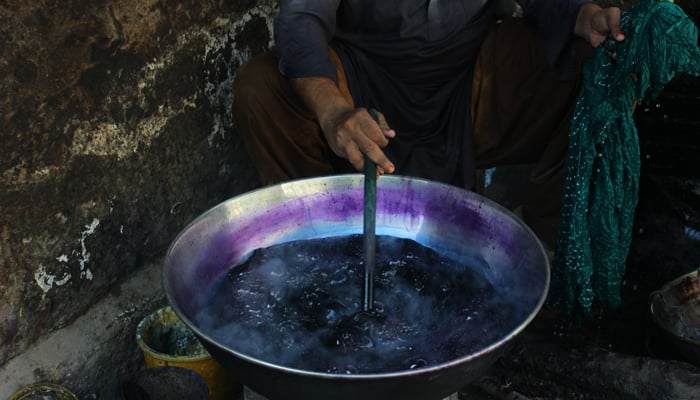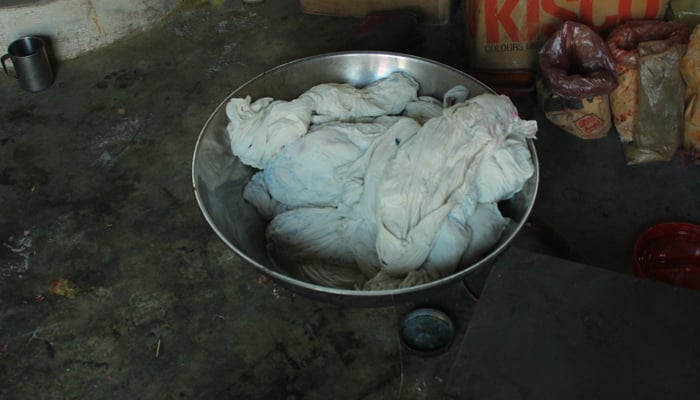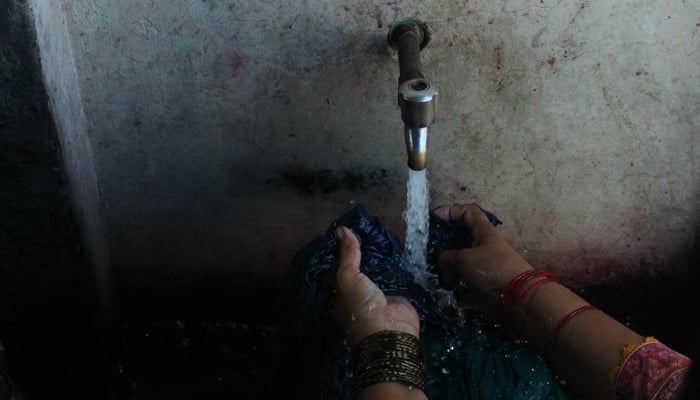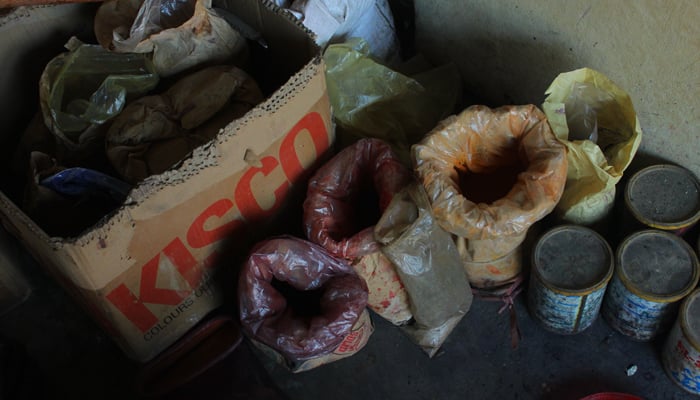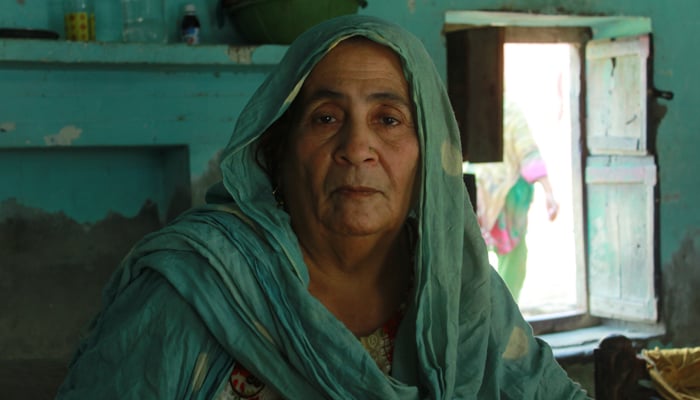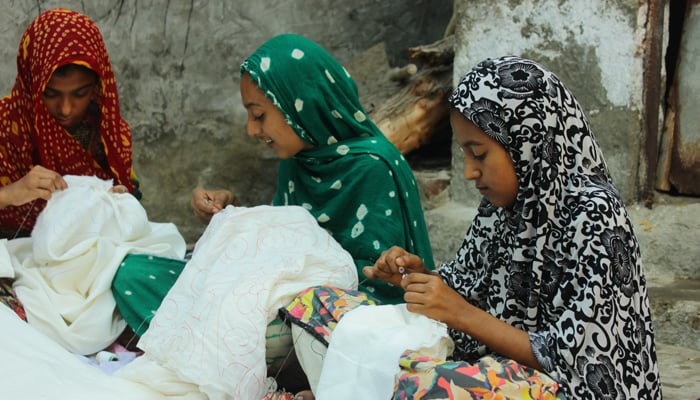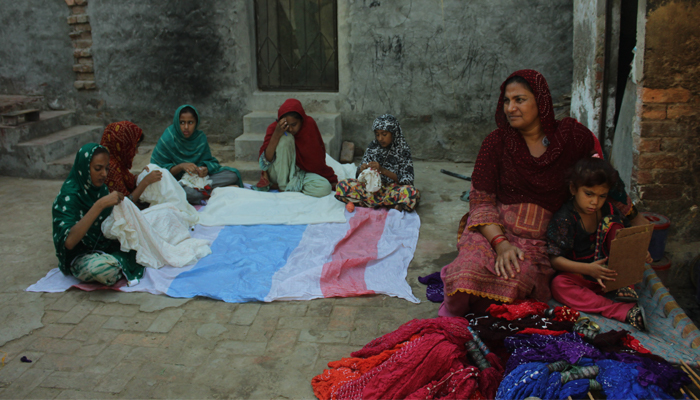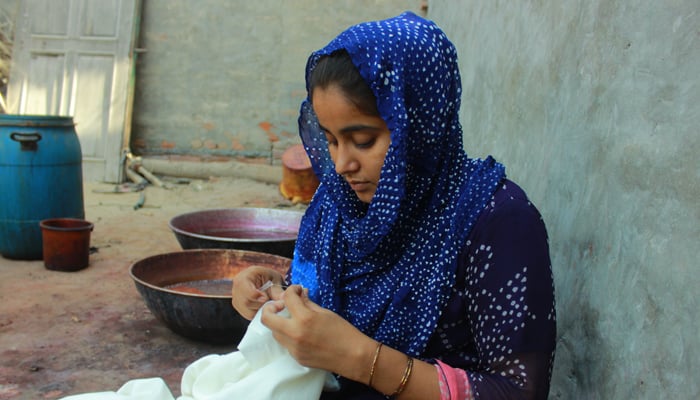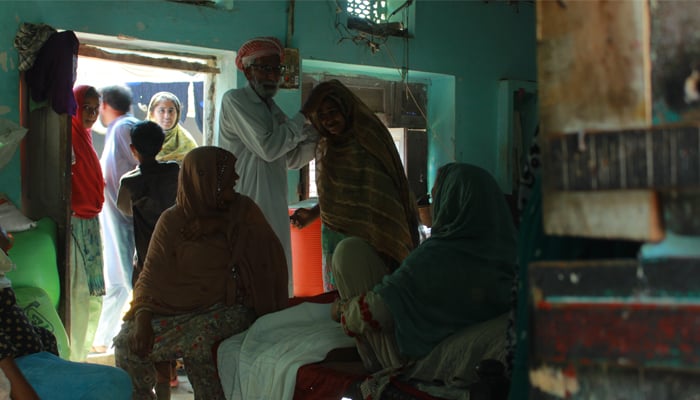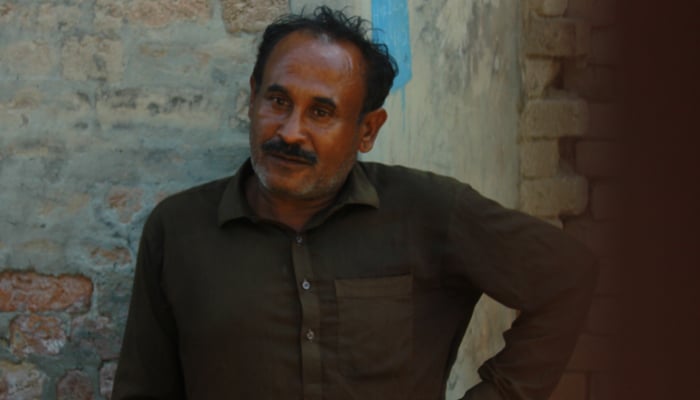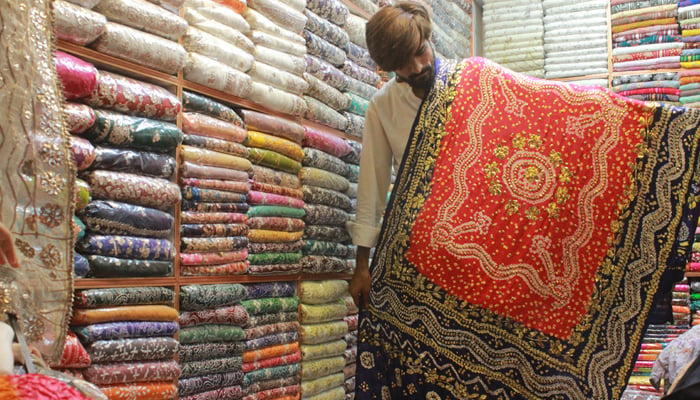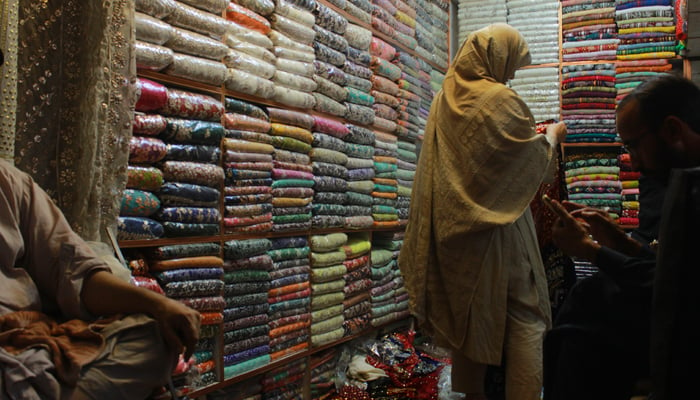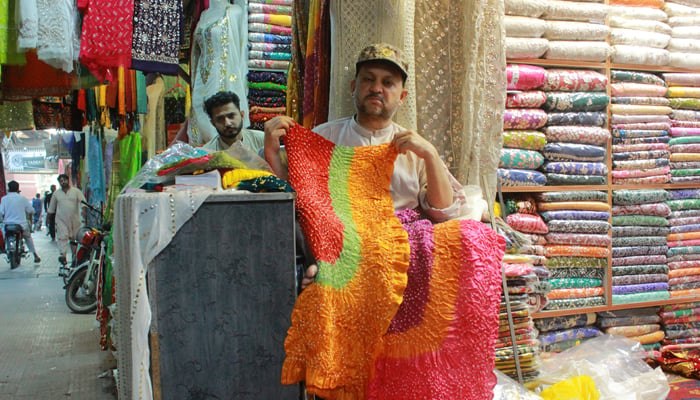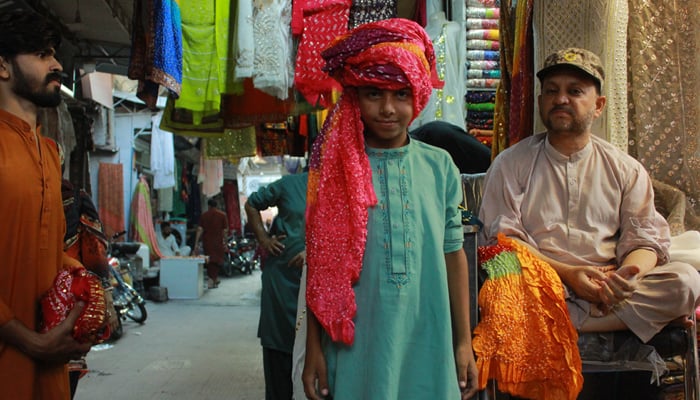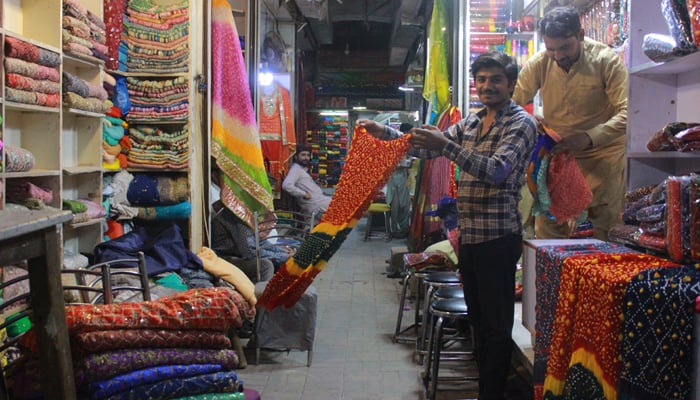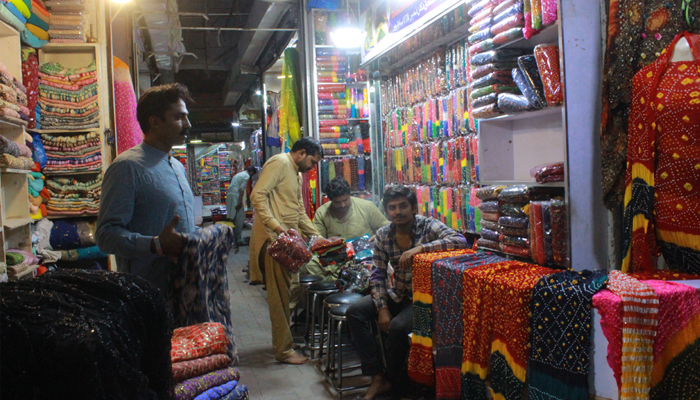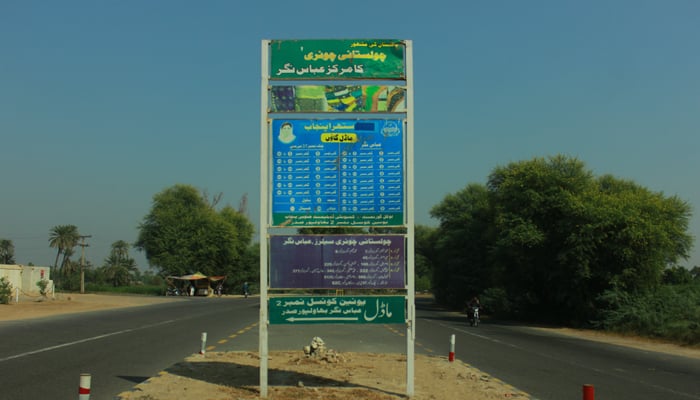Dyeing dreams: The untold stories of Abbas Nagar's chunari-makers
In Bahawalpur's Abbas Nagar, women drive their dreams into each stitch, while men add lifelike colours to make those dreams come true
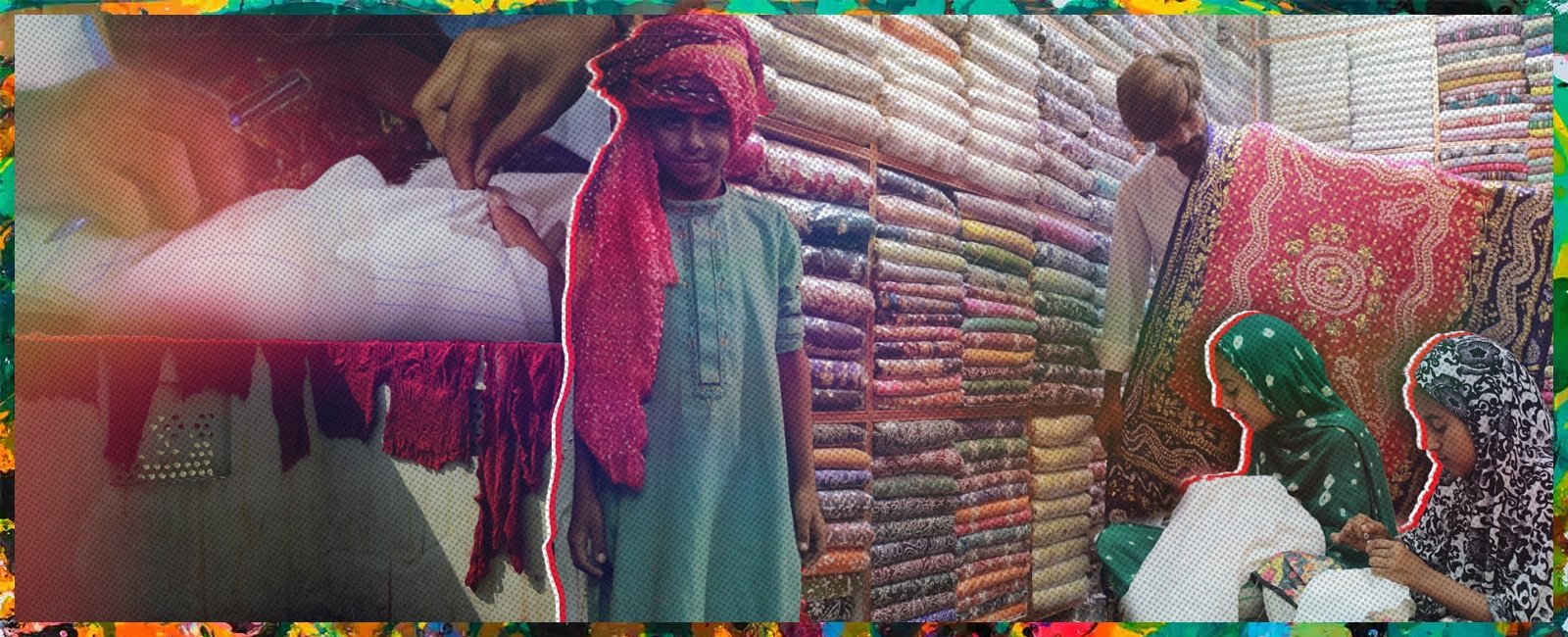
Abbas Nagar, which is located 10 kilometres from Bahawalpur city, is a bustling artisan centre where tradition truly converges with the world’s best-known artisanship.
Distinguished as a powerhouse for producing chunaris — traditional colourful dupattas — this part of South Punjab has not only gained local but also international acclaim, with its handcrafted articles of womenswear exported all over the world. In every household, women dedicate themselves to crafting these colourful textiles, which are celebrated as gifts from the land of Bahawalpur and the great Cholistan Desert.
For 50 years, the women of Abbas Nagar have brought their dreams to life through this intricate craft. To these artisans chunari-making is not just a trade, it is a reflection of their cultural heritage, a vital source of income, and a means to sustain their families. Their dedication has kept this age-old tradition alive, crafting not just the wearables but also a sense of identity and pride.
"I was twelve or fifteen when I began making chunaris, inspired by my mother," shares seventy-year-old Allah Wasaai. "We start by washing plain white cloth. Once it’s clean, we pour our hearts into designing it by hand. Each piece is dyed in vibrant colours and hung to dry. This work weaves our family together as we pay tribute to our ancestors and pass this legacy forward," she explains.
Allah Wasaai is adamant in her belief that no machine can ever recreate the love and dedication they put into their work. "People often ask us about which machines you use, but we tell them our hands are our real machines," she says with a smile. To her, the chunari is more than just a piece of cloth.
According to the veteran chunari-maker, their artisanship manifests the traditions and essence of Cholistan. "Each chunari is interwoven with stories, history, and culture. It’s not just threads but our legacy."
"We prepare the colours ourselves, and none of the dyes is chemical-based," Allah Wasaai says proudly, explaining that their dyeing process relies on sustainable, traditional methods.
They use natural materials like turmeric for golden hues and pomegranate peels for rich reds to create larger-than-life colours while preserving their heritage.
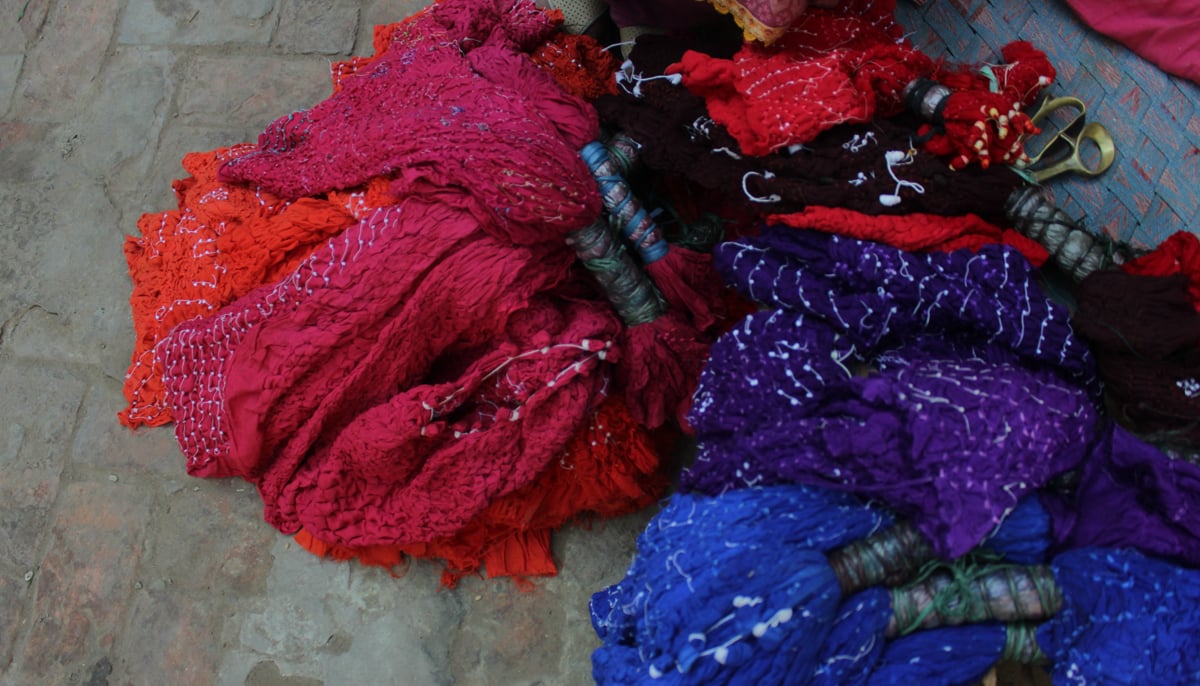
However, beneath this resplendence lies a painful reality. Despite her lifelong dedication, Allah Wasaai admits that she still struggles with inadequate compensation. "I work all day and earn between Rs300 and Rs1,000. It’s disheartening to dedicate my entire life to this craft and still not improve our living conditions," she says.
The younger generation in Abbas Nagar, like eighteen-year-old Zainab Mustaqeem, is also deeply involved in chunari-making. With education limited to the tenth grade in the area, Zainab has channelled her energy into mastering the art.
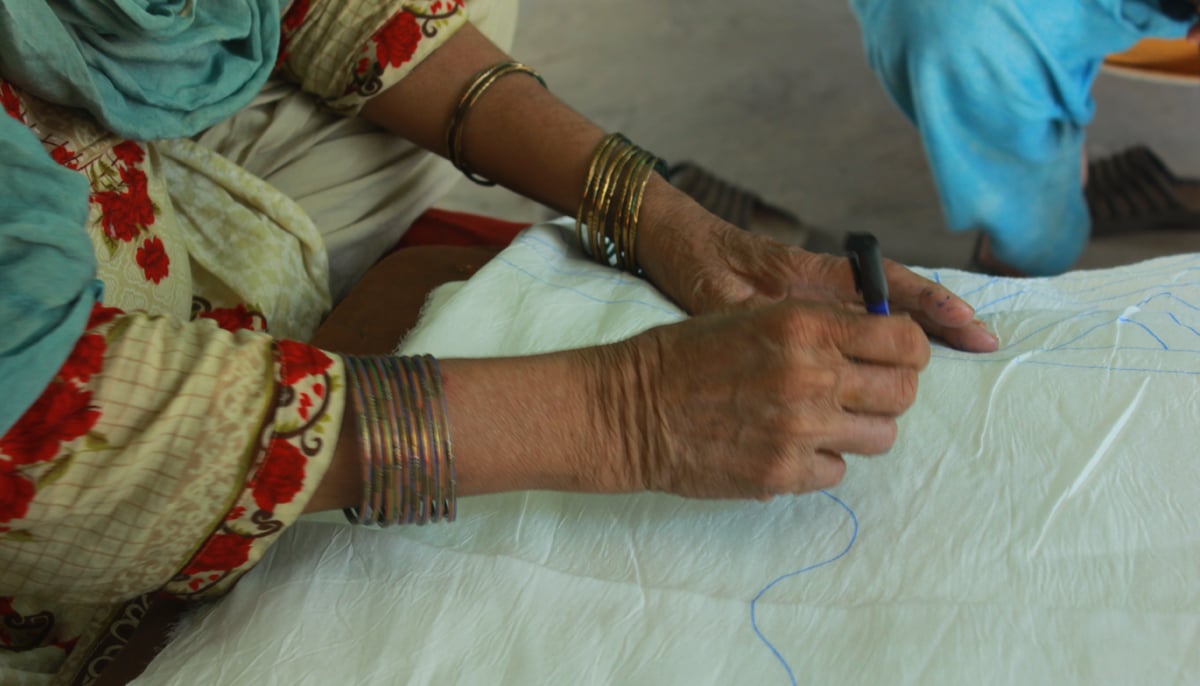
"Chunari fabric comes in various types, like chiffon, and the material determines the final price," Zainab explains. "This work has been passed down to me, and now I’m in a position to teach other girls my age," she adds.
Zainab spends her days sketching designs on paper and fabric, pouring every ounce of her creativity into each piece. The young artisan dreams of becoming a fashion designer but the challenges she faces are daunting.
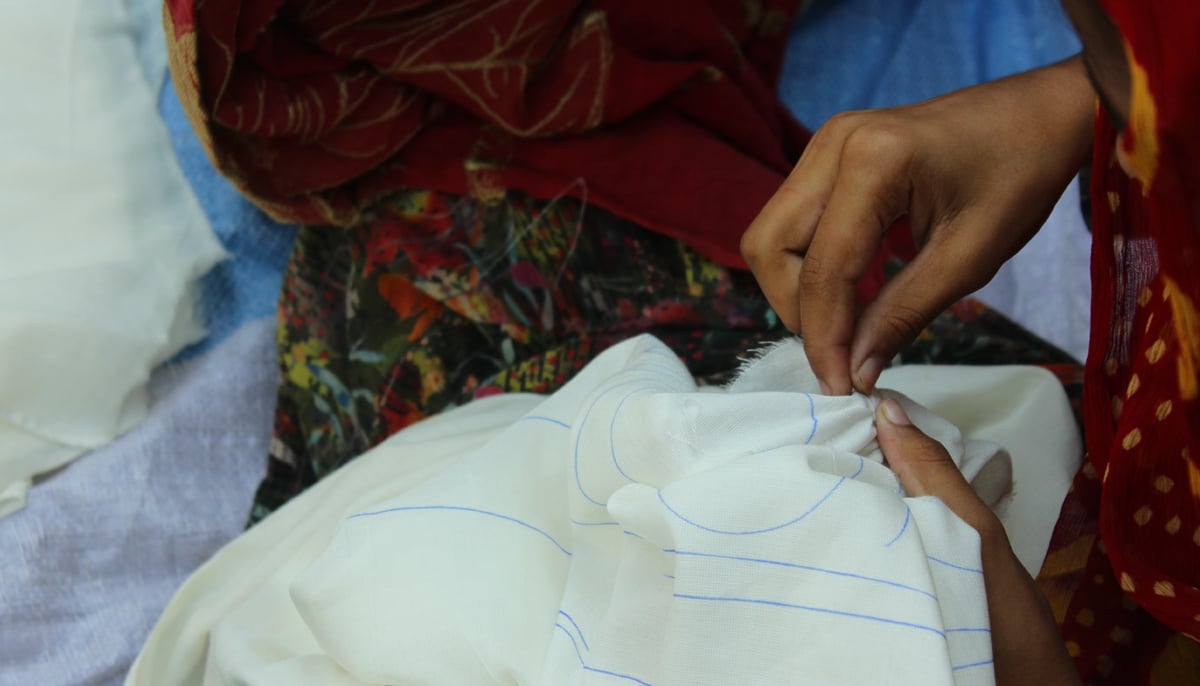
"My grandfather doesn’t allow young girls to travel to Bahawalpur City for education. There are no fashion courses or classes here," she lamented. Despite her family’s support, societal restrictions take a toll on her ambitions, frustrating her.
Forty-year-old Nusrat, another devoted artisan, has spent decades perfecting her craft and spreading it in Abbas the area. With only a primary education, she reflects on her family’s deep ties to the trade. "My grandmother used to travel to India on camels to deliver chunaris, lehenga cholis, and sarees," she recalls.
Despite the global reach and recognition of their mastery, Nusrat feels the community’s contributions often go widely unrecognised.
"We can’t afford design courses, so we’ve become designers within our homes," she says. Nusrat is frustrated by the lack of fair compensation, noting, "Renowned designers sell our work for millions but pay us only a few thousand. We just want to be compensated fairly for our hard work."
Efforts to establish Abbas Nagar as a craft village have yet to bear fruit. "Our conditions are the same as they were fifty years ago," Nusrat says. "I’ve trained women in Lahore, Islamabad, and even Dubai, but I see no significant changes." The lack of government support only adds to her despair. "Sometimes, I feel things might change, especially whenever we get the government’s attention. But a substantial change is yet to come," she reflects.
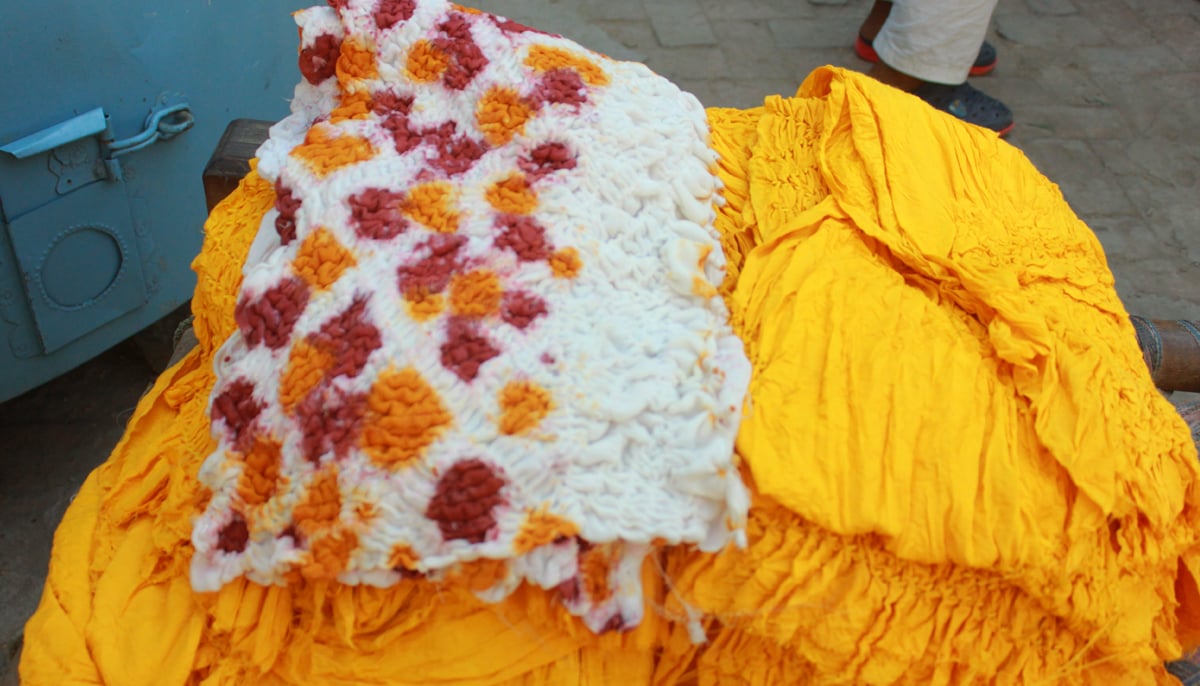
Highlighting the financial and administrative hurdles in supporting Abbas Nagar’s artisans, Muhammad Uzair, manager of Sanatzaar in Bahawalpur said, "If the government establishes a production unit tailored for these women, they can work onsite and manage their household responsibilities simultaneously.”
Uzair believes such a unit would help address their challenges more effectively than a training centre.
The lack of infrastructure remains a pressing issue. Uzair recalls a 2017 government plan to designate Abbas Nagar as a craft village. "Unfortunately, obstacles prevented its implementation," he says. "The next challenge is determining which department should take responsibility for such initiatives."
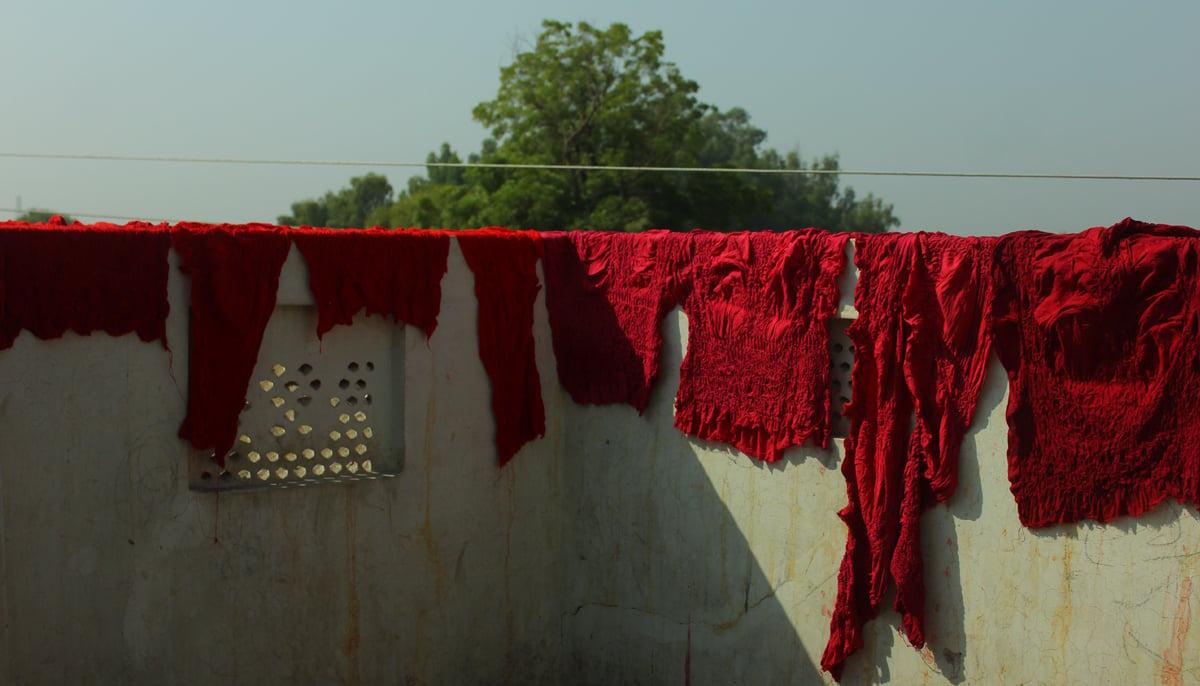
Forty-two-year-old Muhammad Saleem, Nusrat’s husband, plays a crucial role in the chunari-making process. He is responsible for dyeing the fabric and delivering it to vendors. "This work is 80% done by the women of Abbas Nagar. We men are just responsible for taking it to the market," he explains. Saleem questions why fairs promoting their craft are rarely held in the region. "A fair should be organised in Abbas Nagar every year," he insists, noting that such events are common in other provinces.
Under the arches of Bahawalpur’s Grand Mosque, Muhammad Arshad runs a shop filled with chunaris. "These chunaris are Bahawalpur’s speciality," he says. This shop attracts customers from all across the country to purchase chunaris as gifts for friends and family in Pakistan as well as overseas. "These beautifully crafted pieces of cloth are in high demand in India, London, and the Middle East," he adds.
As for the prices, he says they vary depending on the fabric and the intricacy of the design. "You can find dupattas starting at Rs600, while more intricate articles can go as high as Rs2,000," Arshad explains. "Initially, chunaris used to be only red, but now we offer a variety of colours," he adds.
In Abbas Nagar, the women drive their dreams into each stitch, while the men add lifelike colours to make those dreams come true. The chunari is a testament to the community's strength, creativity, and perseverance. Yet, as the sun goes down the horizon each evening, it takes with it all the hopes of these artisans, leaving a bittersweet reminder of their daily struggles.
Mahjabeen Abid is a freelance multimedia journalist. She works on blogs, features and video reports from Southern Punjab. She posts on Instagram @mahjabeenabidkhakhi_
— Header and thumbnail illustration by Geo.tv



